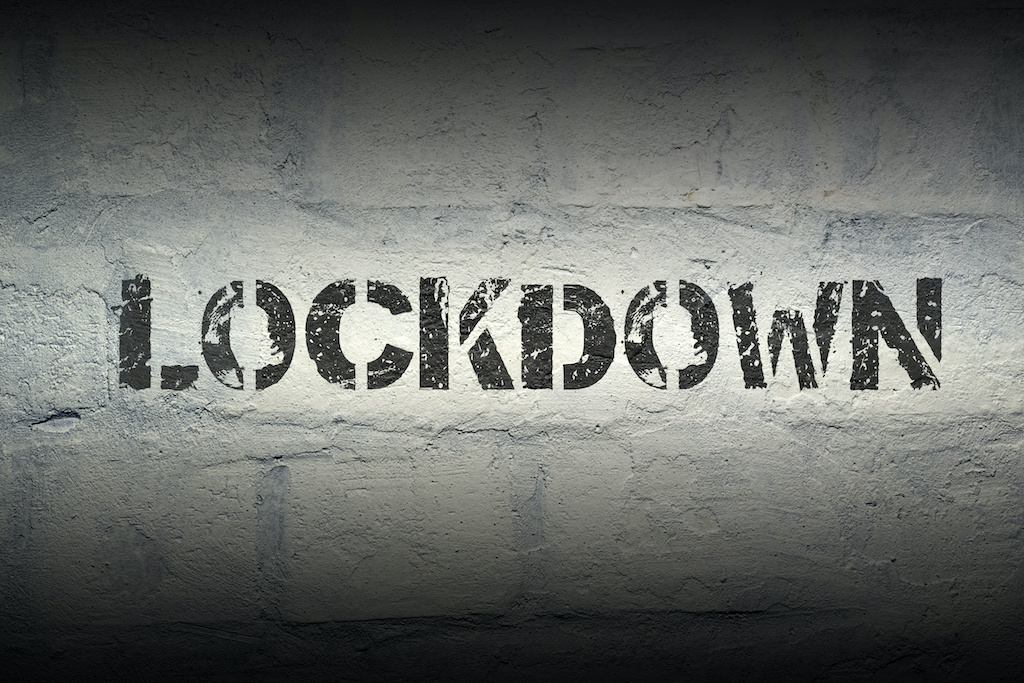The revised Covid-19-induced lockdown regulations which have seen Zimbabwe reintroduce dusk to dawn curfew while banning all public gatherings, reducing working hours for essential services and confining citizens at homes, has shattered hopes of a better 2021 for many.
The 30-day lockdown came at a time when the world had just welcomed the birth of a new year, which many people had thought it would be far much better than the previous which was plagued by the pandemic.
CITE reached out to Zimbabweans who said the lockdown would undoubtedly impact on the New Year.
“The lockdown is coming at a time when we were still recovering from the effects of previous year lockdowns that resulted in continued price hikes of basic commodities,” lamented Kgosi Sebata of Gwanda.
“I had thought that the New Year would ignite my hopes for a better year, but the future now looks bleak. Lockdowns are good to curb the massive spread of Covid-19, however few steps should have been taken to alert the general public to prepare for it. Food availability and access is going to be a challenge due to the 2021 lockdown restrictions.
He said it was regrettable that Zimbabwe had reintroduced a stiffer lockdown without any recovery plans in place.
“Other countries are introducing the lockdown because they have recovery plans in place,” he said.
“For example England has introduced it at the same time they are having a roll out plan for Covid vaccinations. Ours is a trial and error situation. No one knows the next step after the 30-day lockdown.”
With lessons learnt from the previous year, Sebata said, Zimbabwe ought to have a new version of lockdown that limits the spread of the pandemic at the same time enhancing easy recovery.
Sebata said hopes of a better year for many had since been shattered by the lockdown.
“I don’t think 2021 is going to be a good year because we chose the wrong path at the beginning,” he said.
“It’s good that we had good rains and we had prospects of a better harvest, but people are going to harvest crops prematurely because of hunger and high prices on the markets. This will mean that little is going to be harvested for consumption in the long run.”
He added: “With the current situation I don’t foresee myself achieving my plans; with my little savings I’m forced to stock a lot of food stuff in anticipation of lockdown extension, something that I had not planned for. The way we started this year makes people plan abruptly, something that is not good at all.”
John Mabuyane said while the lockdown was necessary in curbing the spread of the pandemic, there was no longer any hope for a better 2021.
“Well from the looks of things this is Session 2 of 2020,” said Mabuyane.
“The year (2021) looks bleak considering that the lockdown was declared for 30 days. I foresee a dead year already. The future is uncertain for everyone. Our goals for the year and future have been turned into dreams that we only live when we close our eyes and sleep.”
He added: “The future is uncertain; we only hope and pray to God for surviving another day. One might say this might be the end of the world.”
Mbonisi Gumbo said it was unfortunate that the lockdown restrictions were seemingly targeting the poor.
“Why are these restrictions only targeting the poor?” he queried.
“There is absolutely no justification for government ban on private taxis not attached to Zupco from operating, when countries that are seriously affected have not banned them, yet Zupco is not giving us a better service.”
Kumbirai Nyandoro also said the lockdown was somewhat meant to suppress the rights of ordinary citizens.
“Lockdowns must come with support systems for the economy; individuals at home must be able to survive,” he told CITE.
“We can’t just shut the economy with no medical supplies. The public, business and churches should have been first consulted. I’m just seeing people who have failed to lead us and all they do is to command us.”
For Fredrick Tafadzwa Chisero, the lockdown, coming immediately after the festive season, caught many Zimbabweans unaware.
“Life seemed to be normalising but unfortunately the lockdown was announced whilst we were out of town and it was a bit rushed,” he decried.
“We didn’t have enough time to stock foods, medication and other basic necessities. More so, we couldn’t manage put in place plans to sustain our business and employees during the period.”
He was however optimistic that 2021 would still be a better year compared to 2020.
“I strongly believe 2021 will be a better way than 2020,” he said.
“The year 2020 caught us pants down and it was a new challenge in our lives where we had to accept and adapt to a new way of life. However, we’re now confronting 2021 with knowledge and lessons from 2020, which will make it easier for the society to deal with its challenges unless there arise a new set of challenges which require different solutions.”
Chisero insisted he was confident he would achieve his 2021 goals.
“What has only changed is the way of life and 2020 helped us to be innovative and adapt to digital technologies in the way of doing business and how we go about our social activities,” he said.
“Of course for the ordinary man in the street the government needs to find a way of helping them realise their dreams because the current lockdown measures are not scientific and will have a material impact on the informal sector.”

